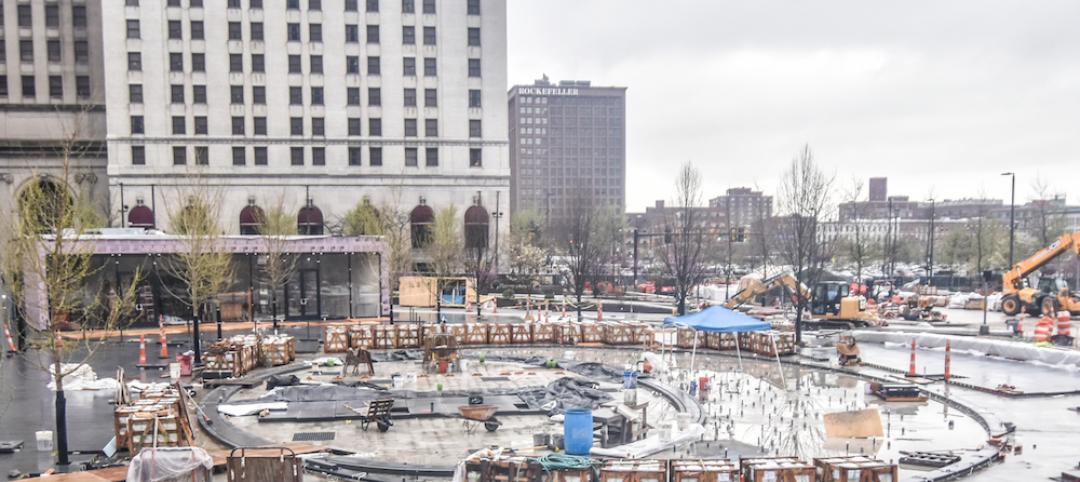Construction spending was a tale of two industries again in November, as soaring single-family construction masked ongoing downturns in private and public nonresidential construction, according to an analysis of new federal construction spending data by the Associated General Contractors of America. Association officials said the new figures underscore the need for new infrastructure investments and other measures to boost demand for nonresidential construction amid the pandemic.
“Private nonresidential construction declined for the fifth-straight month in November, while public nonresidential spending slipped for the fifth time in the past six months,” said Ken Simonson, the association’s chief economist. “Unfortunately, our latest survey finds contractors expect the volume of projects available to bid on in 2021 will be even more meager.”
Construction spending in November totaled $1.46 trillion at a seasonally adjusted annual rate, an increase of 0.9% from the pace in October and 3.8% higher than in November 2019. But the gains were limited to residential construction, which soared 2.6% for the month and 16.2% year-over-year. Meanwhile, private and public nonresidential spending slumped 0.6% from October and 4.7% from a year earlier.
Private nonresidential construction spending decreased for the fifth month in a row, sliding 0.8% from October to November and 9.5% from November 2019. The largest private nonresidential segment, power construction, declined 0.9% for the month. Among the other large private nonresidential project types, commercial construction—comprising retail, warehouse and farm structures—dipped 0.3% for the month, manufacturing construction inched up 0.1%, office construction gained 0.3%, and healthcare construction fell 1.4%.
Public construction spending declined 0.2% for the month but increased 3.1% year-over-year. There were decreases from October to November for most nonresidential categories, although the two largest segments rose: highway and street construction gained 1.8% for the month, while educational construction increased 0.3%.
Private residential construction spending increased for the sixth consecutive month, rising 2.7% in November. Single-family homebuilding jumped 5.1% for the month, while residential improvements spending ticked up 0.2%. Multifamily construction spending was flat.
Association officials said demand for most types of nonresidential construction was likely to remain down for much of the year. They added that they would have more insights on the state of the industry when the association and Sage release their annual Construction Hiring & Business Outlook on Thursday, January 7. In the meantime, they urged the incoming Congress to act quickly to boost investments in infrastructure and pass liability reforms to protect firms that employ necessary safety protocols to protect theirs workers and the public from meritless coronavirus lawsuits.
“Without additional measures to boost demand for nonresidential construction, this year is likely to be a challenging one for the industry,” said Stephen E. Sandherr, the association’s chief executive officer. “The impacts of the pandemic are clearly accumulating for many construction employers.”
Related Stories
Market Data | Jun 3, 2016
JLL report: Retail renovation drives construction growth in 2016
Retail construction projects were up nearly 25% year-over-year, and the industrial and office construction sectors fared well, too. Economic uncertainty looms over everything, however.
Market Data | Jun 2, 2016
ABC: Nonresidential construction spending down in April
Lower building material prices, a sluggish U.S. economy, and hesitation among private developers all factor into the 2.1% drop.
Market Data | May 20, 2016
Report: Urban area population growth slows
Older Millennials are looking to buy homes and move away to more affordable suburbs and exurbs.
Market Data | May 17, 2016
Modest growth for AIA’s Architecture Billings Index in April
The American Institute of Architects reported the April ABI score was 50.6, down from the mark of 51.9 in the previous month. This score still reflects an increase in design services.
Market Data | Apr 29, 2016
ABC: Quarterly GDP growth slowest in two years
Bureau of Economic Analysis data indicates that the U.S. output is barely growing and that nonresidential investment is down.
Market Data | Apr 20, 2016
AIA: Architecture Billings Index ends first quarter on upswing
The multi-family residential sector fared the best. The Midwest was the only U.S. region that didn't see an increase in billings.
Building Technology | Apr 11, 2016
A nascent commercial wireless sensor market is poised to ascend in the next decade
Europe and Asia will propel that growth, according to a new report from Navigant.
Industry Research | Apr 7, 2016
CBRE provides latest insight into healthcare real estate investors’ strategies
Survey respondents are targeting smaller acquisitions, at a time when market cap rates are narrowing for different product types.
Market Data | Apr 4, 2016
ABC: Nonresidential spending slip in February no cause for alarm
Spending in the nonresidential sector totaled $690.3 billion on a seasonally adjusted, annualized basis in February. The figure is a step back but still significantly higher than one year ago.
Market Data | Mar 30, 2016
10 trends for commercial real estate: JLL report
The report looks at global threats and opportunities, and how CRE firms are managing their expectations for growth.

















